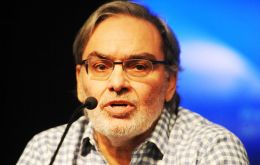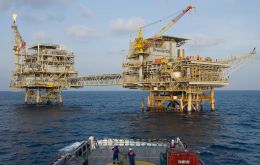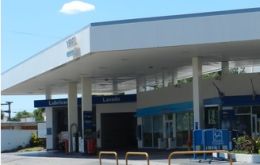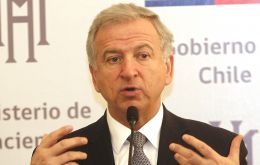MercoPress. South Atlantic News Agency
Tag: Brent Oil
-
Thursday, September 19th 2019 - 10:32 UTC
Argentina defreezes fuel price meaning 4% increase at pumps

Effective this Thursday, the government of Argentina agreed to defreeze the price of fuel and thus authorize a 4 percent increase after yielding to pressure from province governors and oil companies as the barrel of crude also goes up globally.
-
Friday, December 28th 2018 - 08:55 UTC
Oil prices remain under pressure from US stockpiles and concerns with the global economy

Oil prices jumped as much as 3% on Friday to win back a chunk of the ground they lost in the previous session, but growth in U.S. crude stockpiles and ongoing concerns about the global economy kept markets under pressure.
-
Saturday, November 17th 2018 - 08:56 UTC
Premier Oil confident in reducing debt; begins drilling in Mexico

Premier Oil said it expected full-year production to come in at the low end of a previously announced 80,000 to 85,000 barrels per day range. The company, with interests in the Falkland Islands and which has been focusing on cutting debts, also said its debt pile would shrink to US$ 2.4 billion by the year-end.
-
Sunday, November 4th 2018 - 15:02 UTC
Fuel goes up 7% in Argentina, 14th increase in 2018 to reach a total 65% this year

The retail price of fuel went up around seven percent this weekend in Argentina, for an aggregate 65 percent yearly rise that led impoverished consumers to use other transport means to make up for it.
-
Friday, October 12th 2018 - 15:11 UTC
Chile's finance minister defends newest, sharpest increase in fuel price

Chile's Finance Minister Felipe Larraín justified the seventh increase in as many weeks in the price of petrol because the Fuel Price Stabilization Mechanism (Mepco) has subsidized 50 million dollars so far this year.
